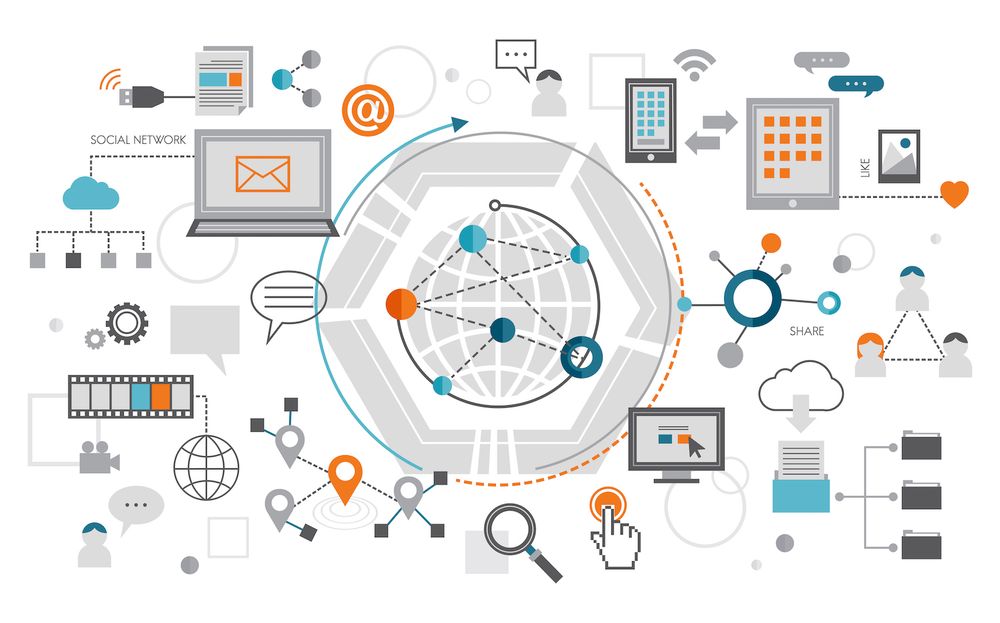Terms

When new technology is released into the world It's tempting to jump headlong into the new innovation and integrate it into all aspects of your business.
With the advent of artificial intelligence (AI) and machine learning, you might be tempted to add chatbots or large-language models (LLMs) throughout your customer service offering. However, here at our company we've noticed that a compromise needs to find, according to Lauren Gilbert, Eyal Avital and Mau Fournier of our Customer Happiness team.
Particularly in the realm of customer service, AI can be beneficial but should be used with caution when compared to a true, human, expert in customer service. "Many individuals want to assign the entirety of their customer support duties to the latest AI tools, but there are always situations which require human interaction. The idea of delegating all tasks to AI could leave some of your clients more dissatisfied as they were prior to when they wrote in," starts Mau.
Let's take a look at the ways and times you might be able to integrate AI to improve your customer service offering.
The most important qualities to have for a customer service team
First of all, what exactly does the perfect customer service be as? How does it help a company's customers?
"We try to embody the five characteristics of PREACH to ensure an approach to customer service," starts Eyal Avital. "We strive to be proud and Responsible, as well as Empathetic. articulate, concise and human.
Everyone agrees that empathy may be one of the most crucial aspects. "Put yourself in the customers in their shoes, and be empathetic to their circumstances. Make them aware they are important to the people behind the business who help to manage it." begins Lauren.
"Empathy is often overlooked" says Mau. "You have to show empathy so that you can understand the client's problem And you must show empathy when you respond so that the client feels heard, which can help reduce their defensiveness if they're upset."
Customers also require assistance from someone who is knowledgeable enough about the product to be able offer all of the information needed - as well as the language to convey it. "When it comes to a platform that you count upon to manage your business, getting support immediately from someone who is familiar with the software inside and out, and can explain how to solve a problem with a manner that is easy to grasp and take action on, is essential," thinks Lauren.
Customer service is not just a box-ticking exercise: genuine helpfulness is essential. "Don't just answer their superficial inquiry - discover the reason behind the question; what they're trying to accomplish," thinks Mau. "Help them to resolve the main problem, then follow-up afterward to ensure they've succeeded in getting it done. It is likely that people will leave content if they can sense someone on the other side really wants to figure out ways to aid them," he adds.
Lastly, don't overlook timeliness and clearness when you interact. "You need to provide prompt help, communicate clearly and concisely," starts Lauren. Eyal says: "You must be timely when you respond to your customers. You can give an A+ rating, however, if you're not prompt enough for the customer to think about it they'll be dissatisfied and negatively view the interaction."
When AI fails
There is no doubt that AI can be helpful in the case of busy entrepreneurs and business owners however, it's not always the best option. We believe there are a number of elements of great customer service which AI can simply not recreate.
Personalisation
From our observations so far, AI is missing the goal of providing solutions that can satisfy the specific needs of a customer. We've come across numerous instances of assistance desk software that demands customers to respond to a lengthy sequence of questions prior to receiving an automated response. By definition the automated response can only resolve a limited amount of problems because it's not a "one size fits all' situation.
"AI is certainly able to demonstrate its proficiency and offer solutions to your questions. And it will often be better at this than humans, although its expertise might not be as up-to-date and aware of your specific domain as a human could be," says Mau. "It is able to be useful when it comes to simple, quick conversations however it will not take ownership of being helpful and it can't follow up as a human would or at the very least, not as yet."
Longevity
Although LLM (AI) applications have improved their voice in their interactions with customers, there's a method to improve. "LLM apps can stick to a respectful tone of voice however, it's not the same as genuine compassion from a human. Humans are able to feel compassion and the ability to connect an experience to its specific experience can't be replicated," says Mau.
Similar to that, AI is all about the short-term. "LLMs have a short attention span that's integrated into the system," he adds. "They will not remember that conversations you had six months ago about your customer's challenges and how the content you provide them with as well as the fact that they like to go on fishing excursions with their loved ones. Incorporating these information to new discussions will give your clients the impression that you really care."
AI is a great tool to help
This is not to say that AI isn't beneficial to customer service. There are certainly clear-cut opportunities for automation, like with any other new technological innovation However, it is crucial that you know when to make changes at the right time.
"We must put AI into mundane tasks that could be automated while keeping the human voice an alternative for people with specific requests," Mau begins. Mau. " LLMs offer a fantastic response draft, however, the most effective result is always the editing you make to that draft. Bring your own voice into conversations."
"What was once FAQs on websites can now be dealt with artificial intelligence or bots to answer simple questions quickly and 24/7. Anything that isn't one-click or one-question solutions should then be redirected to human support," Eyal adds. "Otherwise it could cause customers to be quick to lose patience. It's like the old days of getting stuck and having to repeat numbers in order to reach the appropriate department on the phone."
The integration of AI is a gradual process. "There's an evolving process (crawl-walk-run) to integrate bots or LLMs," starts Eyal. "New companies should devote greater time and effort to the community with hands-on support. When they become more well-known, they may be able to delegate their frequently asked queries for LLM."
"AI could help you expand as your career progresses with more members, which can raise inquiries," says Mau. "Many of them will be simple queries that AI can take off of your plate so you can focus on the more nuanced questions."
"You might be able to get away with relying on AI in the beginning however I'd advise against it. I'd recommend greater manual assistance for those who are just starting out. The inquiries you receive in the early stages of your career are an abundance of information that you can use to understand your intended group and ways to improve things for them."
Conclusion
It appears that the "people-first" method we're adopting works well. It combines the expertise of a plethora of experts along with the emotion only a human being could bring. Eyal affirms that our way of work helps to humanize Memberul as a brand "a mix of empathy with sharing resources, as well as adding some fun through Emojis and GIFs" keep things fun and useful.
Mau has shared some of the feedback from a customer, who noted it was enjoyable talking "to an actual person who had such a genuine way of helping" and someone who could offer personalized guidance for their specific query. "That customer told me it was the best service they've ever received!" smiles Mau.
Lauren recalls one customer who wrote in to express concern over member retention. Based on her experience in her business, as well as the unique patterns in her own business We were able to provide advice on a pricing strategy which ultimately improved her customers' lifetime value.
"You might be able to use AI to help you with these kinds of questions but when it comes to making decisions that can have an enormous impact on your company I'd say that the vast majority of people don't want to trust AI alone with that or any other decision. They shouldn't, according to my view".
